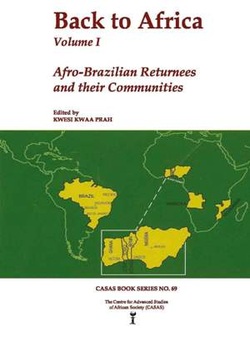Emilio Tezas Aufschlüsselung der Grammatik des Papiamentu
SCHAUMLOEFFEL, Marco Aurelio. Emilio Tezas Aufschlüsselung der Grammatik des Papiamentu. In: Philipp Krämer (Org.). Ausgewählte Arbeiten der Kreolistik des 19. Jahrhunderts / Selected Works from 19th Century Creolistics. 1ed.Hamburg: Buske, 2014, Kreolische Biblithek Band v. 24, p. 31-38.
Leseprobe: h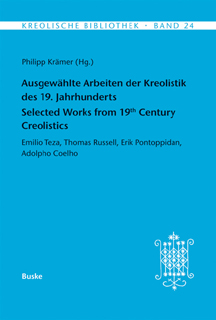 ttps://buske.de/reading/web/?isbn=9783875486780
ttps://buske.de/reading/web/?isbn=9783875486780
Webseite des Verlags:
http://www.buske.de/product_info.php?products_id=3881
Philipp Krämer (Hg.)
Ausgewählte Arbeiten der Kreolistik des 19. Jahrhunderts / Selected Works from 19th Century Creolistics
Emilio Teza, Thomas Russell, Erik Pontoppidan, Adolpho Coelho
Kreolische Bibliothek, Band 24. 2014. 184 Seiten. 978-3-87548-678-0.
Die Disziplingeschichte der Kreolistik ist noch lange nicht vollständig aufgearbeitet. Gerade im 19. Jahrhundert entfaltete sich ein neues Interesse für Kreolsprachen.
Dieser Band zeigt die ganze Vielfalt der Vorläufer des Faches: Vier bisher weniger beachtete Texte aus verschiedenen Ländern von ganz unterschiedlichen Autoren mit ihren eigenen Schwerpunkten können im Original und in deutscher Übersetzung neu entdeckt werden. Neben den Editionen beleuchten zu jeder historischen Arbeit jeweils zwei Kommentare von ausgewiesenen Fachleuten die Facetten der Quellen. Vom epistemologischen Erbe der Disziplin zur biographischen Vorstellung der Autoren, von der historischen Grammatik zur philologischen Bedeutung der Oralliteratur reichen die Fragestellungen, welche die heutige Kreolistik anhand älterer Texte angehen kann.
INHALT
Vorwort …………………………………………………………………………………………… VII
Einleitung: Vier Kreolisten – und was ihre Arbeiten für die Gegenwart
bedeuten (Philipp Krämer) …………………………………………………………………. IX
Il dialetto curassese (Emilio Teza) ……………………………………………………….. 1
Der Dialekt von Curaçao (Emilio Teza) ……………………………………………….. 11
Emilio Teza: A Curious Genius and Nomad of Philology
(Roberta Pasqua Mocerino / Markus Lenz) ………………………………………….. 23
Emilio Tezas Aufschlüsselung der Grammatik des Papiamentu
(Marco Aurelio Schaumloeffel) …………………………………………………………… 31
The Etymology of Jamaica Grammar (Thomas Russell) …………………………. 39
Thomas Russell’s Grammar of “A Stubborn and Expressive Corruption”
(Don E. Walicek) ………………………………………………………………………………. 55
Thomas Russell’s Contribution to Historical Jamaican Grammar
(Joseph T. Farquharson) ……………………………………………………………………. 67
Einige Notizen über die Kreolensprache der dänisch-westindischen Inseln
(Erik Pontoppidan) ……………………………………………………………………………. 79
Det dansk-vestindistke kreolsprog (Erik Pontoppidan) ………………………….. 89
Die dänisch-westindische Kreolsprache (Erik Pontoppidan) …………………… 99
Dr. med. Erik Pontoppidan und das Negerhollands (Peter Stein) …………….. 109
Die kreolische Oralliteratur: eine Kultur des Widerstandes?
(Magdalena von Sicard) ……………………………………………………………………… 123
Os dialectos romanicos ou neo-latinos na África, Ásia e América
(Adolpho Coelho) ………………………………………………………………………………. 143
Die romanischen oder neulateinischen Dialekte in Afrika, Asien und
Amerika (Adolpho Coelho) ………………………………………………………………… 149
Die letzten Geheimnisse Adolfo Coelhos? (Sílvio Moreira de Sousa) ………. 157
Neither raça nor povo. Adolpho Coelho’s Particular Universalism
(Philipp Krämer) ………………………………………………………………………………. 175
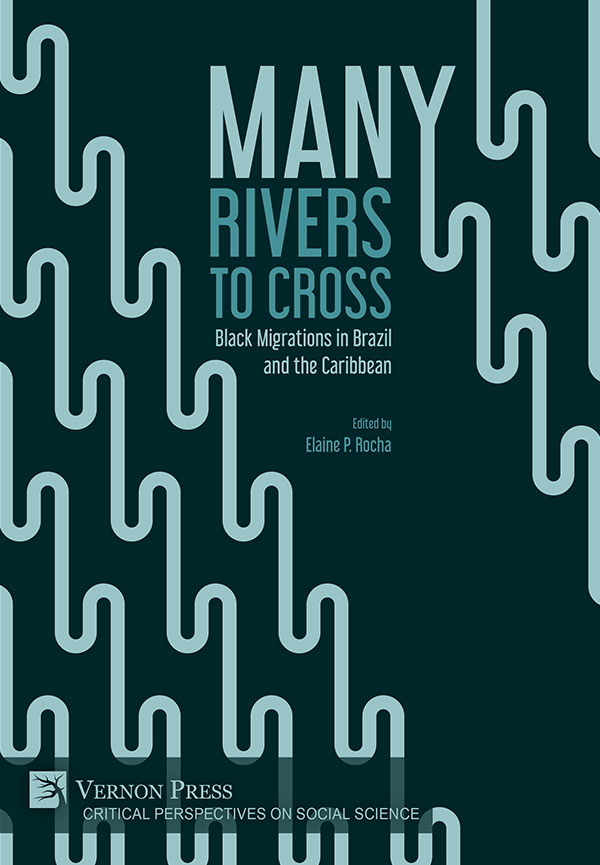
 Os Tabons do Gana, a diáspora afro-brasileira na África Ocidental ainda pouco conhecida
Os Tabons do Gana, a diáspora afro-brasileira na África Ocidental ainda pouco conhecida Texto selecionado no I Concurso Literário de Poemas e Contos em Hunsrückisch e publicado no livro “Hunsrückisch em Prosa e Verso”, páginas 93-96.
Texto selecionado no I Concurso Literário de Poemas e Contos em Hunsrückisch e publicado no livro “Hunsrückisch em Prosa e Verso”, páginas 93-96.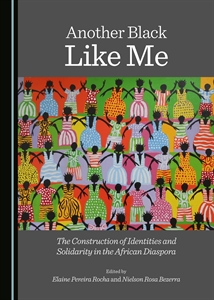
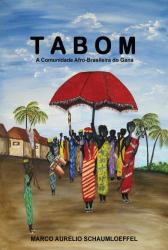 O primeiro livro sobre a história dos tabons, a comunidade afro-brasileira do Gana. Eles voltaram à África Ocidental entre 1829 e 1836. “Este livro parece pequeno, mas possui muitas portas, como se fosse um casarão. Elas se abrem para várias e diferentes paisagens e nos deixam ver, primeiro, de fraque e cartola e, depois, envoltas em belo pano kente, as figuras humanas que as povoaram e cujas histórias os atuais tabons repetem de cor. Se, em suas páginas, aprendemos muito sobre o grupo tabom, graças ao cuidado e à inteligência com que Marco Aurelio Schaumloeffel soube ouvir e ler, elas nos pedem que saibamos mais.” (Alberto da Costa e Silva).
O primeiro livro sobre a história dos tabons, a comunidade afro-brasileira do Gana. Eles voltaram à África Ocidental entre 1829 e 1836. “Este livro parece pequeno, mas possui muitas portas, como se fosse um casarão. Elas se abrem para várias e diferentes paisagens e nos deixam ver, primeiro, de fraque e cartola e, depois, envoltas em belo pano kente, as figuras humanas que as povoaram e cujas histórias os atuais tabons repetem de cor. Se, em suas páginas, aprendemos muito sobre o grupo tabom, graças ao cuidado e à inteligência com que Marco Aurelio Schaumloeffel soube ouvir e ler, elas nos pedem que saibamos mais.” (Alberto da Costa e Silva).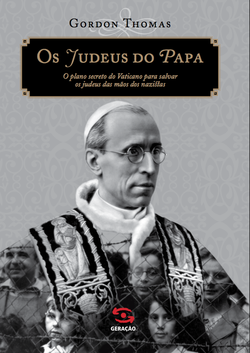

 Este artigo de 29 páginas investiga os empréstimos de palavras e expressões do português em algumas das diversas línguas faladas no Gana. Este fenômeno foi causado pela presença portuguesa naquela área, iniciada em 1471, e pelo fenômeno dos retornados vindos da Bahia, lá chamados de “Tabom people”, ocorrida no início do Século XIX. Disponível nos formatos impresso e arquivo eletrônico. 29.09.2011
Este artigo de 29 páginas investiga os empréstimos de palavras e expressões do português em algumas das diversas línguas faladas no Gana. Este fenômeno foi causado pela presença portuguesa naquela área, iniciada em 1471, e pelo fenômeno dos retornados vindos da Bahia, lá chamados de “Tabom people”, ocorrida no início do Século XIX. Disponível nos formatos impresso e arquivo eletrônico. 29.09.2011
